Issues
NHRC Monitor
On 5 September 2011, Burma’s regime established a National Human Rights Commission (NHRC) charged with promoting and safeguarding the fundamental rights of citizens in accordance with the 2008 Constitution. It is clear that the NHRC does not comply with the Paris Principles, which lay out the minimum conditions that must be met for a National Human Rights Institution to be considered independent and effective in protecting and promoting the rights of the people. Read more.
People’s Voices
The people of Burma continuously find ways to take action on issues that matter to them, despite restrictions and the threat of retaliation or imprisonment. These actions may include expressing opposition to a development project or protesting against human rights violations such as land confiscation. Read more about their courageous acts of resistance.
Crimes Against Humanity
For decades the military regime has violently oppressed Burma’s ethnic communities with systematic crimes including forced relocation, forced labour, sexual violence, extrajudicial killings, torture, and the recruitment of child soldiers. Ongoing documentation provides evidence that these widespread and systematic human rights abuses may constitute war crimes and crimes against humanity. Impunity reigns in Burma, and has been institutionalized by the military-written 2008 Constitution, which provides blanket immunity to the regime and sanctions the continuance of war crimes and crimes against humanity, especially against ethnic civilians. Read more.
Environmental and Economic Justice
Large-scale development projects such as oil pipelines, roads, ports, and dams are destroying Burma’s natural environment and threatening communities’ traditional livelihoods. These projects lead to forced displacement of entire villages and other human rights abuses, while lining the pockets of generals and international corporations. Read more.
ASEAN
Since the Association of South-East Asian Nations’ (ASEAN) Charter came into force at the end of 2008, Burma has been in serious breach of several fundamental principles relating to democracy, human rights, and regional peace and security.ASEAN cannot continue a policy of economic engagement with Burma’s military regime without a parallel responsibility for critical political engagement. It must recognize the necessity of political dialogue and national reconciliation before the regime cements its power in the upcoming elections.Read more.
2010 Elections
“The showcase election planned by the military regime makes a mockery of the freedom sought by our people and would make military dictatorship permanent.” — U Win Tin, member of the Central Executive Committee and a founder of the National League for Democracy. Read more.

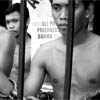
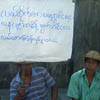
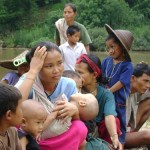
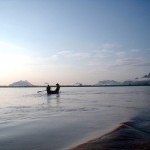
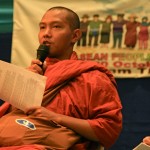
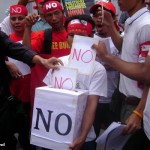








 All posts
All posts